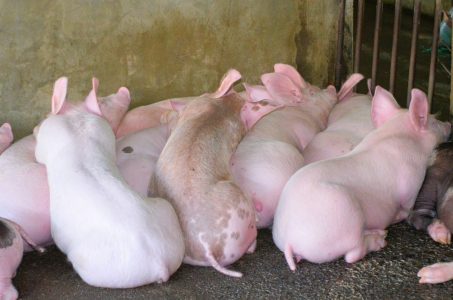The Philippine Department of Agriculture (DA) has assured the public that African swine fever (ASF) cases in the Philippines remain under control. Officials noted a significant decline in infections during the livestock sector’s annual ‘third quarter storm.’
DA Assistant Secretary Arnel de Mesa said current ASF numbers show a marked decrease compared to last year. He emphasized that the department continues to manage the situation effectively.
Decline in cases
Government data highlight a sharp drop in ASF incidents.
- ✅ Q3 2024 recorded nearly 5,000 cases.
- ✅ Q3 2025 logged only 657 cases.
- ✅ As of October 2025, only 27 barangays nationwide reported active ASF cases.
These figures confirm the nationwide decline, though isolated outbreaks still require close monitoring.
Mr de Mesa described the downtrend as “very significant,” stressing that no resurgence has been detected.
Control measures
Authorities continue to implement a controlled vaccination program for healthy and ASF-negative hogs. Border and biosecurity measures have also been strengthened nationwide.
The DA said these actions helped manage ASF during the seasonal uptick of livestock diseases known as the “third quarter storm.”
Isolated incidents in Quezon City
Despite the national decline, ASF cases isolated incidents have emerged in Quezon City. Two weeks ago, 14 lechon (whole pig roasted on a spit) shops in the area were temporarily closed after ASF traces were found in some processing facilities.
Mr de Mesa said reopening of the shops will require an affidavit of undertaking between business owners, the Bureau of Animal Industry, and the Quezon City government to ensure compliance with safety protocols. Meanwhile, the Department of Health assured the public that ASF cannot infect humans.
Officials emphasized that pork remains safe to eat if thoroughly cooked. Authorities stressed that vigilance remains key to keeping ASF under control.

